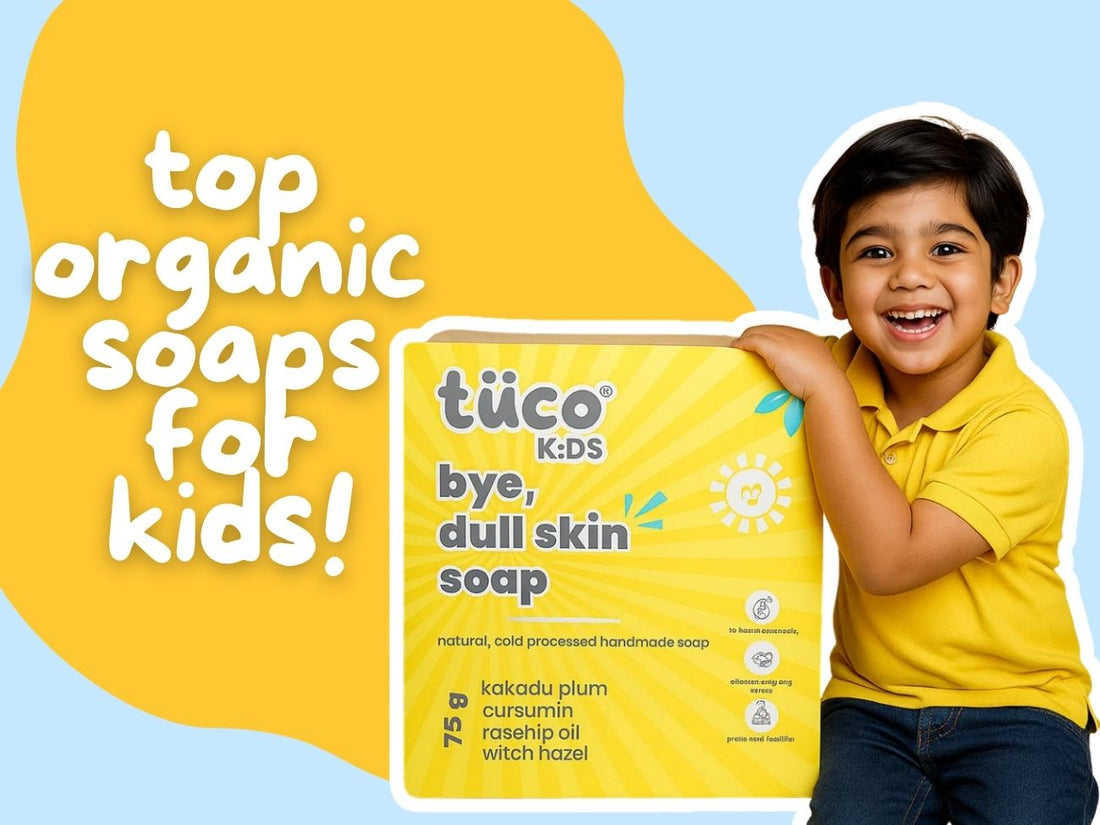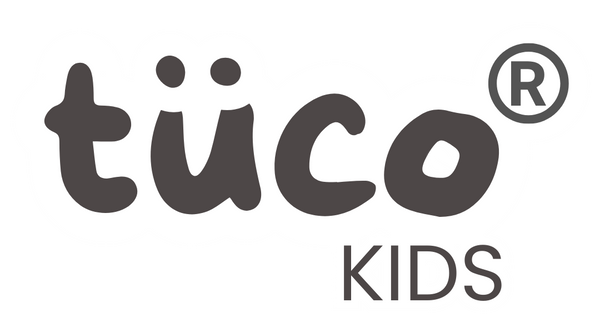
What Are Organic Soaps? Are They Better for Children?
Soaps and body washes are made through a process called saponification, where fats or oils are mixed with alkalis to create cleansing bars. To improve shelf life, scent, or texture, many conventional soaps also include preservatives, synthetic detergents, artificial fragrances, and colorants. While these additives make the soap look or smell appealing, they are not always gentle on children’s delicate skin.
Understanding Organic Soaps
Organic soaps are cleansing bars made primarily from natural oils, plant extracts, and botanical ingredients that are grown without synthetic pesticides, chemical fertilizers, or genetically modified organisms (GMOs). Instead of harsh detergents and artificial fragrances, organic soaps often use ingredients like coconut oil, olive oil, shea butter, aloe vera, oats, turmeric, and essential oils.
Unlike conventional soaps, which may include parabens, sulfates, synthetic dyes, or petroleum-based preservatives, organic soaps aim to be safer and more environmentally friendly. They are often biodegradable, non-toxic, and pH balanced, making them particularly appealing for children’s delicate skin.
Harmful Ingredients Found in Regular Soaps
Children’s skin is thinner and more absorbent than adult skin, making it more vulnerable to harsh chemicals. Here are some common additives parents should avoid when choosing kids’ soap or body wash:
-
Harsh Sulfates (SLS, SLES): Strip away natural oils, leaving skin dry and irritated.
-
Parabens: Used as preservatives but linked to hormonal disruption.
-
Synthetic Fragrances and Dyes: Known to trigger allergies, rashes, and sensitivities.
-
Phthalates: Hidden in fragrance blends and associated with long-term health concerns.
-
Strong Alcohols: Dry out the skin and compromise the protective barrier.
- Formaldehyde-Releasing Preservatives: Sometimes found in soaps, causing irritation and possible toxic exposure.
Why Organic Soaps May Be Better for Children
Children’s skin is thinner, more sensitive, and more prone to irritation than adult skin. Here’s why organic soaps can be a healthier choice:
-
Gentler on the Skin: Organic soaps typically use mild, plant-based cleansers that preserve natural oils rather than stripping them away.
-
Fewer Allergens and Irritants: Without harsh chemicals and synthetic fragrances, there’s a lower risk of rashes, dryness, or allergic reactions.
-
pH Balanced: Many organic soaps are closer to the skin’s natural pH (around 5.5), which helps protect the skin barrier.
-
Moisturizing: Oils and butters like coconut oil, olive oil, and shea butter provide hydration and nourishment.
- Eco-Friendly: Organic soaps often use biodegradable formulas and minimal packaging, aligning with eco-conscious parenting choices.
This makes them a healthier choice for daily use on children’s skin.
How Long Should Kids Use Gentle Soaps?
Parents often assume that once children are past the toddler stage, they can start using adult soaps. But in reality, kids’ skin remains sensitive well into the pre-teen years. Adult soaps are often too harsh, leading to dryness, early breakouts, and irritation.
Dermatologists recommend continuing mild, child-safe soaps until at least age 14. By then, skin is more resilient and ready for stronger formulations. Using gentle soaps throughout childhood ensures healthy skin and instills good hygiene habits early.
Bathing Bars: Safe, Gentle Care for Children
Tuco Kids has created bathing bars designed specifically for young, delicate skin. The products combine organic-inspired botanicals with clinically safe formulations that parents can trust.
-
Sensitive Skin Bathing Bar
Made with oats, rice water, licorice, and allantoin, this bar soothes irritation and locks in moisture. With a pH of 5.5, it gently cleanses without stripping natural oils, making it perfect for children with sensitive or allergy-prone skin.
-
Dull Skin Bathing Bar
Enriched with turmeric, Kakadu plum, coconut oil, olive oil, and shea butter, this bar brightens dull or tired-looking skin while deeply moisturizing. Its natural botanicals refresh the skin and restore a healthy glow.
Both options are sulfate-free, paraben-free, non-toxic, and dermatologist-tested, making them excellent choices for kids from toddlers to pre-teens.
Parent Tips: Choosing the Right Soap for Kids
- Look for soaps that are pH balanced (around 5.5).
- Avoid parabens, sulfates, synthetic dyes, and harsh preservatives.
- Choose natural moisturizers post bath also like oats, coconut oil, or shea butter.
- Stick with mild soaps until at least 14 years of age.
- Always patch-test new products for sensitivity.
While organic soaps are generally safer, parents should still check labels. Even natural essential oils can sometimes irritate very sensitive skin. The best approach is to choose a dermatologist-tested, child-safe organic soap that balances natural goodness with clinical safety.
To Conclude,
Organic soaps aren’t just a trend, they are a healthier alternative for children. With natural cleansers, balanced pH, and nourishing ingredients, they protect delicate skin while reducing irritation risks. Parents should continue choosing mild, gentle soaps through the early teen years for lasting skin health.
With options like the Tuco Kids Sensitive Skin Bathing Bar and the Tuco Kids Dull Skin Bathing Bar, parents get the perfect blend of organic goodness and clinical safety. Tuco Kids ensures that bath time is more than just cleansing, it’s daily care that keeps children’s skin soft, safe, and glowing.

